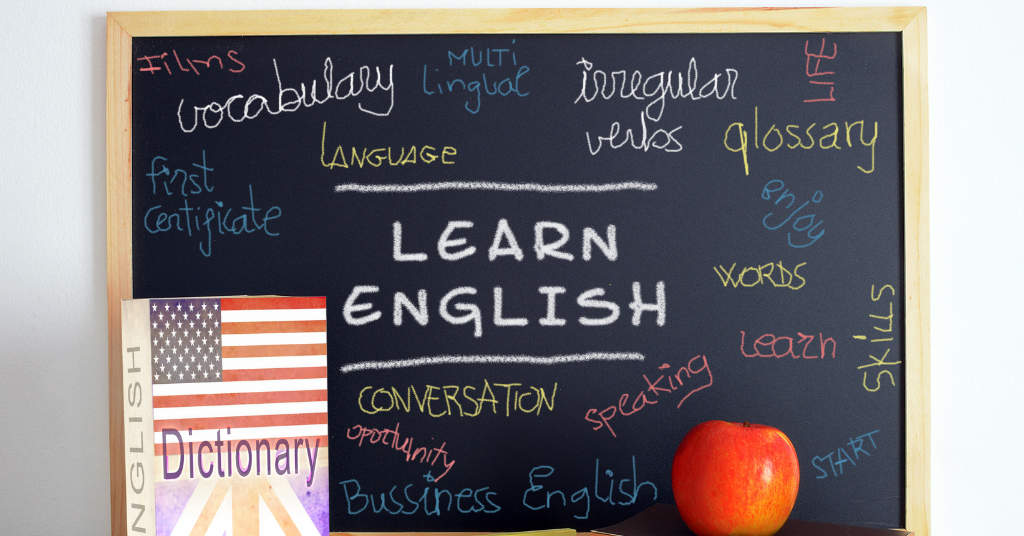English grammar serves as a foundation stone for learning and mastering the basics of the English language. And as a part of basic English grammar, the first and foremost thing that you learn is the different types of English sentences.

Why Does Sentence Type Matter?
As a parent, are you also wondering why your child should have a basic understanding of the different types of English sentences? Well, the more your kids will learn about English grammar and syntax, the stronger their writing skills will become. As already mentioned, both grammar and sentence structure are the foundation for proper communication in English.
If you want your child to communicate effectively with others or else they should be able to adjust themselves in their social network, or whether it’s writing assignments, looking for jobs, or writing resumes, sentence formation will play a key role in all these aspects because it will help your child in expressing themselves. Thus, this will also make the communication process easier. The more types of sentences your kids will learn and practice, the better their writing skills will become. They will be able to use different types of English sentences in their conversations and they can make the entire communication process interesting.
Related Article: 10 Reasons Why Book Reading Is Important for Kids
How to Construct a Sentence?
When it comes to the types of sentences, there are primarily 4 types of English sentences. But before going into depth, it is important to understand how you should construct the base of a sentence. 2 factors complete a sentence that is the subject and the verb. While, the subject can be used to denote the person, place, or object and verb refer to the actions being performed. In most cases, the subject will be a noun, pronoun, and proper noun.
(a) For instance-“Jane loves to read books”.
In this sentence, Jane is the subject because she is a person, and read is the verb since she is acting. Hence, this is a complete sentence. Now let’s take a look at an incomplete sentence.
(b) Let’s consider a very simple example- “Because she reads books”.
In this sentence, there is a verb and the subject is missing. Without the subject, we don’t know who is reading the book hence, this is an incomplete sentence.
1. Independent and Dependent Clauses
Complete and incomplete sentences are also known as independent and dependent clauses.
a) The Independent Clause
An Independent clause can be defined as a complete sentence and it can stand alone and communicate a clear thought. It is very simple to identify an independent clause simply by looking at the subject and the verb.
i) Let’s consider a few examples
Rohan is moving to England next year.
Neha has decided to learn English.
b) The Dependent Clause
A Dependent clause is the complete opposite of the independent clause. An incomplete sentence that cannot stand alone or on its own and does not communicate a clear message. You can easily spot a dependent clause because it uses a transition word or conjunction either at the beginning or end.
ii) Let’s consider a few examples
As the lights went out…
When your mother gets home…
2. Simple, Compound, and Complex Sentences
Before we delve into the core depth of the different types of English sentences, you should know how the sentences are classified. The classification of a sentence depends on the total number of independent and dependent clauses it contains.
a) Simple Sentence
A simple sentence can be defined as one that consists of one independent clause but no dependent clause.
iii) Let’s consider a few examples
Julie takes her dog to the park after her studies.
I want to have pasta for dinner.
b) Compound Sentence
A compound sentence can be defined as one that consists of two or more independent clauses but no dependent clause.
iv) Let’s consider a few examples
They ran out of chips, but no one had any money to buy more snacks.
I am very sick; I don’t think I am going to school today.
c) Complex Sentence
A complex sentence can be defined as one that consists of one independent clause and one or more dependent clauses.
v) Let’s consider a few examples
I forgot it was going to rain today, so I didn’t bring my umbrella.
Because Becca forgot to study for the exam, she didn’t get the marks she had been hoping for.

The 4 Core Types of English Sentences
When talking about the 4 main types of English sentences, we will focus on the following that is- imperative sentences, interrogative sentences, declarative sentences, and exclamatory sentences. Each of these sentences is used for a specific reason and purpose.
1. Declarative Sentences
A declarative sentence can be defined as one that is used to provide information about something. Declarative sentences are the most basic type of sentences that you can use, and they can be both simple and complex depending on the individual. Declarative sentences are mostly used in academic writing as they are used for communicating various facts, statements, and even evidence.
vi) Let’s consider a few examples
Jay walked home from school today.
Narendra Modi was born on September 17th, 1950.
The pizza place isn’t open on Sundays.
2. Imperative Sentences
An imperative sentence is used to make a command, and it either ends in a period or with an exclamation mark. Rather than converting information or a message, an imperative sentence tells someone to do something. Make sure that while using imperative sentences the command should be strong. You can also use imperative sentences to give someone some advice, instruct someone to do something or you can simply address someone. These types of sentences are mostly used in casual conversation or dialogue or creative writing.
vii) Let’s consider a few examples
Bring your textbook to class next week.
Please turn down the AC.
Please go and wash your hands.

3. Interrogative Sentences
Interrogative sentences are the ones that you can use for asking questions, and such types of sentences are either directly spoken or written directly to the subject. Interrogative sentences will always end with a question mark. Another factor that makes these sentences unique is that they begin with who, what, where, when, why, how, or do. Just like imperative sentences even interrogative sentences might not always include a subject since they are directly spoken to someone, and due to this reason they are not always treated as complete sentences.
viii) Let’s consider a few examples
How did Joana get to school this morning?
Which train should I take to get to Amritsar?
What time does the movie start?
4. Exclamatory Sentences
When compared to its counterparts, an exclamatory sentence is used to convey and express strong emotion and most of the sentences end with an exclamation mark. Similar to a declarative sentence, even an exclamatory sentence is used to make a statement about something, but with a stronger impression. When talking about the usage of exclamatory sentences they are more often used in casual conversation, and occasionally you can find them in formal writing.
ix) Let’s consider a few examples
Wait for me!
I am so happy!
I want to go on a solo trip!
Related Article: 5 Effective Tips to Improve English-Speaking Skills of Your Kid
Final Words
These are the 4 basic types of English sentences that are not only important but will also help in strengthening your foundation for the English language. You can also browse through PiggyRide and enroll your kids in some of the best online English classes for kids. The online English classes brought to you by PiggyRide will lay a special focus on all the core concepts and grammar.
The classes are well designed and planned as per the learning stage of the students. Depending on your child’s needs, you can choose between beginner, intermediate, and advanced level learning on our platform. Moreover, our English tutors are highly experienced and well-qualified. So, if you are looking for some of the best online English classes, PiggyRide should be at the top of your list.
Don’t waste time, enroll your kids today!


Leave a Reply